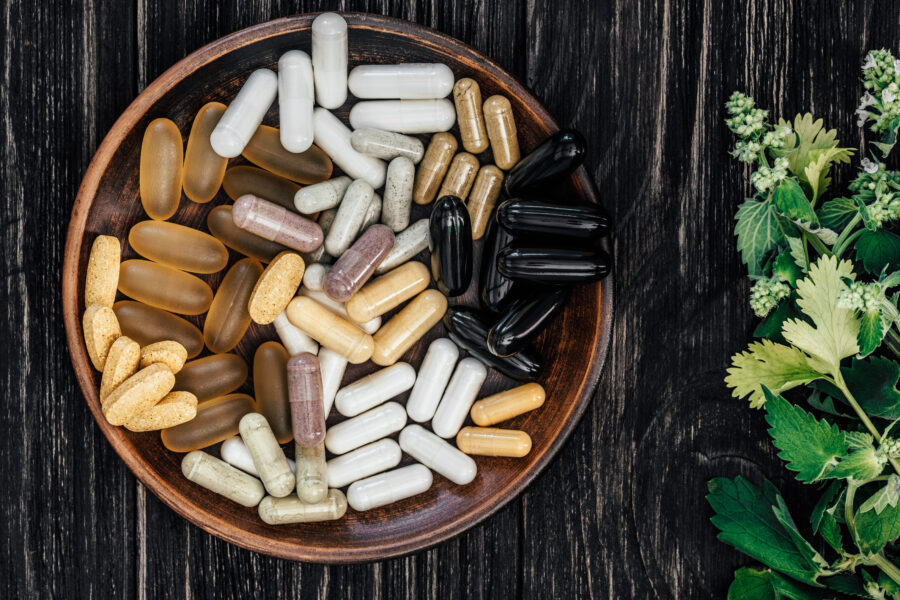The miracle of flavonoids-Apigenin
BlogIn nature, flavonoids have attracted extensive attention from scientists for their abundant biological activities and pharmacological effects.

Among them, Apigenin has become a research hotspot because of its unique characteristics and diverse application prospects. This article will take you deeper into the mysteries of Apigenin.
What is apigenin?
Apigenin is a flavone (a subclass of bioflavonoids) primarily found in plants. It is frequently extracted from the plant Matricaria recutita L (chamomile), a member of the Asteraceae (daisy) family. In foods and herbs, apigenin is often found in the more stable derivative form of apigenin-7-O-glucoside.
Basic information about Apigenin
Apigenin, also known as apigenin or apigenin, is a flavonoid that is widely distributed in Daphne family, verbena family, and selaginaceae, especially in celery. Its chemical formula is C15H10O5, its molecular weight is 270.237, its melting point is 347-348 ℃, its boiling point is 555.51℃, and its appearance is light yellow needle-like crystal. Although its water solubility is poor, Apigenin has a variety of biological activities, which makes it have wide application potential in medicine, food and other industries.
What are other names for Apigenin
Note that Apigenin is also known as:
- Biapigenin (a dimer found in nature)
- 4′ 5 7-Trihydroxyflavone
Apigenin should not be confused with:
- Genistein
Biological activity and pharmacological action
- Anti-tumor effect: It was found that Apigenin can capture the G2/M phase of the cell cycle and inhibit cell expansion, thereby inhibiting tumor growth. Its mechanism is related to the inhibition of protein kinase C and oncogene expression, and it can also enhance intercellular communication of gap junction and further inhibit tumor development.
- Cardiovascular and cerebrovascular protection: Apigenin has the effect of lowering blood pressure and dilating blood vessels, and can prevent atherosclerosis, so as to protect cardiovascular and cerebrovascular health.
- Antiviral and antibacterial effects: As a natural antioxidant, Apigenin has antiviral and antibacterial activities and has certain potential for the treatment of HIV and other viral infections.
- Other effects: In addition, Apigenin also has sedative and calming effects, and can inhibit the carcinogenic activity of carcinogens, and is a multifunctional flavonoid compound.
Dosage informationMedical disclaimer
For general health needs, multiple daily servings of fruits and vegetables can provide adequate amounts of apigenin, which is estimated to be less than 5 mg/day. Apigenin is sufficiently bioavailable through such dietary sources.In contrast, apigenin that’s been isolated from its source is rarely stable enough to be absorbed by the body. Because isolated apigenin is so unstable, it is unlikely that it will be available in supplement form.
What are apigenin’s main drawbacks?
There is little evidence to suggest that apigenin causes adverse effects when consumed as part of a normal diet. No toxicity has been reported as a result of dietary apigenin intake. It should be noted, however, that when dosages exceed typical intake to an extreme (30–100 mg/kg of body weight), sedation has been reported as a side effect.
Application prospect
Although Apigenin has a variety of biological activities, its oral bioavailability is low due to its poor water solubility and low intestinal absorption, which limits its wide application. However, with the development of science and technology, it is expected to overcome these limitations and improve the bioavailability and efficacy of Apigenin by changing the mode of administration or combining with other drugs.
In the field of medicine, Apigenin can be used as a candidate component of tumor drugs for the development of novel anti-tumor drugs. At the same time, its cardio-cerebrovascular protective effect also provides a new idea for the development of cardiovascular disease treatment drugs. In the food industry, Apigenin can be used as a functional food additive to enhance the antioxidant properties and health effects of foods.
Look to the future
With the deepening of the research on Apigenin, we will have a more comprehensive understanding of its biological activities and pharmacological effects. In the future, Apigenin is expected to be better applied in clinical therapy and food industry by optimizing drug delivery methods, improving bioavailability and developing new drug carriers. At the same time, the study on the interaction and mechanism of Apigenin with other drugs will also provide new ideas and methods for the development of new drugs.
In conclusion, Apigenin, as a kind of flavonoid with various biological activities, has broad application prospects in medicine and food. With the continuous progress of science and technology and the deepening of research, we believe that Apigenin will contribute more to the cause of human health.
